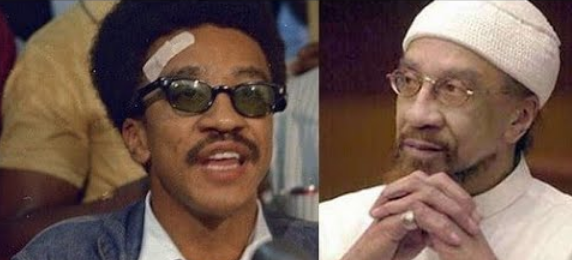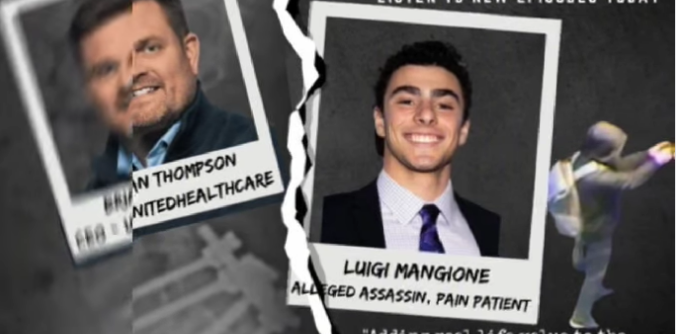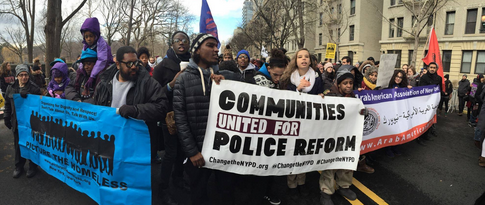In Maine, a judge rejected Govenor LePage’s attempt to quarantine nurse Hickox
Kaci Hickox, 33, had no Ebola symptoms. Yet, two Governors wanted her under quarantine. It is the worse Ebola crisis in history. Call it hysteria or an abundance of caution, but this disease has the public and politicians trying to understand their rights in the time of Ebola.
The fast moving nature of Ebola, grisly symptoms, and lack of a cure, has led to forced quarantines, travel bans, and discrimination. Kaci Hickox, a nurse, returned from treating Ebola patients in Sierra Leone, West Africa, only to be placed under involuntary quarantine.
Gov. Chris Christie and New York Gov. Andrew Cuomo ordered all medical personnel returning from West Africa under 21-day quarantine. Governors can pass laws requiring quarantines to protect the health of their citizens. The President and Congress can also quarantine persons to prevent the spread of infectious diseases, under the Public Health Service Act of 1944.
Unless they serve a real threat, Federal and State governments cannot prohibit people from inter-state travel. The 14th Amendment and Article 4 of the Constitution provide a right to travel within this country. And, Paul Robeson, African-American actor, singer, attorney, and activist, successfully challenged a U.S. denial of his right to travel outside of this country.
Thomas Eric Duncan, 42, traveled from Liberia, West Africa, to Dallas, TX. He died, and two of his nurses, Nina Pham and Amber Vinson, contracted Ebola from him. Vinson admits traveling to Ohio by plane with a low-grade fever. However, no passengers contracted the disease. Both Pham and Vinson recovered. But, the scare led to calls for a travel ban and quarantine for anyone coming in contact with Ebola patients.
When Hickox arrived in Newark airport she was put into a make-shift quarantine tent outside of University Hospital in Newark, NJ and prohibited from traveling. Later, she was allowed to travel by car to her home in Fort Kent, Maine, where she was immediately quarantined in her home, with an officer stationed at her door.
Ebola is contracted by exposure to infected fluids. “Infection can occur if personal protective equipment (PPE) is not worn during close contact, “within a household, health care facility, or the community,” says the CDC website. But, Ebola is contagious only when a patient shows symptoms, according to the CDC.
Medical personnel, like Nurse Hickox, monitor themselves for Ebola symptoms. According to the CDC, they watch for fever or rise in temperature. Ebola Virus Disease (EVD) symptoms are fever, severe headache, fatigue, muscle pain, vomiting, diarrhea, and stomach pain, according to the Centers for Disease Control (CDC).
When Dr. Craig Spencer, 33, arrived in New York City, from treating Ebola patients in Guinea, he was asymptomatic. However, a few days later, he developed Ebola. Prior to the fever, Spencer had been bowling with friends, taking the subway, and at eating at restaurants. He remains in stable condition, with no reports he infected the public.
After a nurse in Spain contracted Ebola from patients she treated while in Africa, travel restrictions were issued in over 30 countries. On October 31, Canada suspended the issuance of visas to travelers who have visited any West African countries affected by the Ebola virus.
Louisiana will not accept garbage from Dallas’ Ebola patients. Attorney General Buddy Caldwell stopped trucks containing Thomas Eric Duncan’s belongings from entering their State’s landfill. Caldwell acknowledges that incineration of the waste eliminates all threats, but stands by his decision. Waste matter from an Ebola patient is considered a Category A hazardous material, according to the CDC.
“We certainly share sadness and compassion for those who have lost their lives and loved ones to this terrible virus, but the health and safety of our Louisiana citizens is our top priority.” Caldwell said, “There are too many unknowns at this point, and it is absurd to transport potentially hazardous Ebola waste across state lines.”
In Maine, Judge Charles C. LaVerdiere, the chief judge for the Maine District Courts, ruled against the Gov. LaPage’s mandatory quarantine of Kaci Hickox. However, Hickox must submit to daily monitoring for symptoms, coordinate her travel with public health officials, and notify them immediately if symptoms appear.
Laws can protect against Ebola discrimination. In the Bronx, NY, two Senegalese-American boys were beaten and called “ebola” at school. In Milford, Ct, Stephan Opayemi filed a federal lawsuit after his third-grade daughter was banned from Meadowside School for 21 days following her returning from Nigeria.
The Americans with Disabilities Act (ADA) protects against discrimination based on real or imaged illness. The Human Relations Commission can address claims of discrimination based on national origin. In Staten Island, NY, members of the largest Liberian community outside of Africa complain of ongoing Ebola-related discrimination in employment and housing.
Kaci Hickox won her freedom. But, she chose not to travel. In the Maine Sunday Telegraph, Kaci Hickox thanked Judge LaVerdiere for basing his decision on science. “I hope in six months aid workers… can walk into a grocery store and maybe no one even knows they were working in a country with Ebola,” Hickox said.
Gloria J. Browne-Marshall, an associate professor of constitutional law at John Jay College (CUNY), covers the U.S. Supreme Court, United Nations and major legal issues. She is the Supreme Court correspondent for AANIC (African-American News & Information Consortium) and author of “Race, Law, and American Society: 1607 to Present.”







